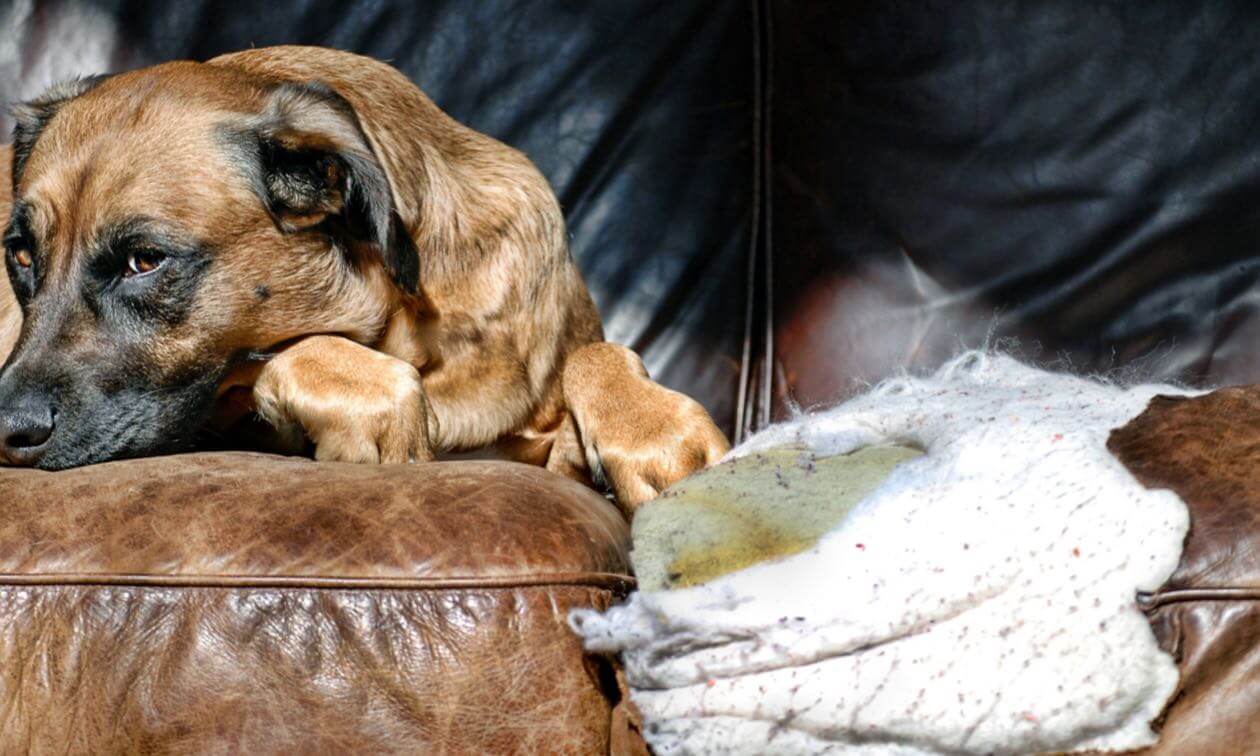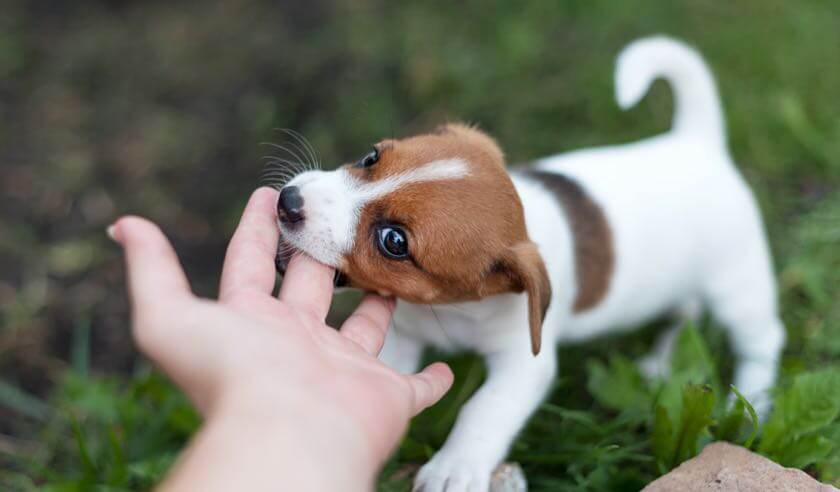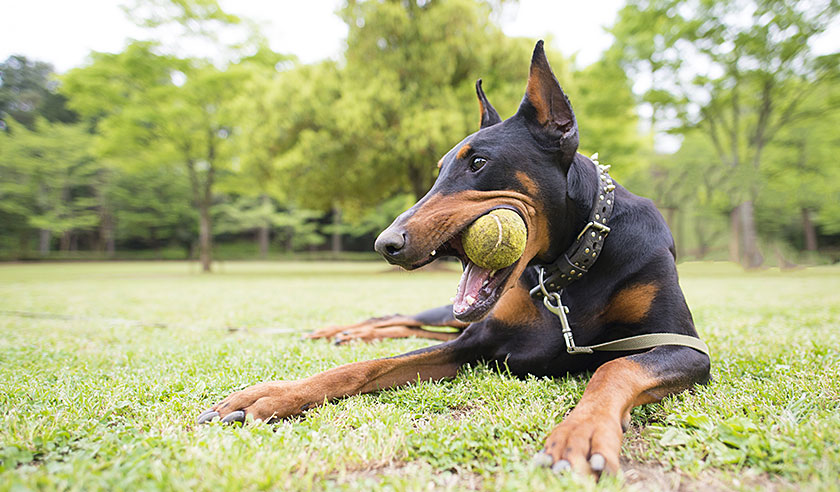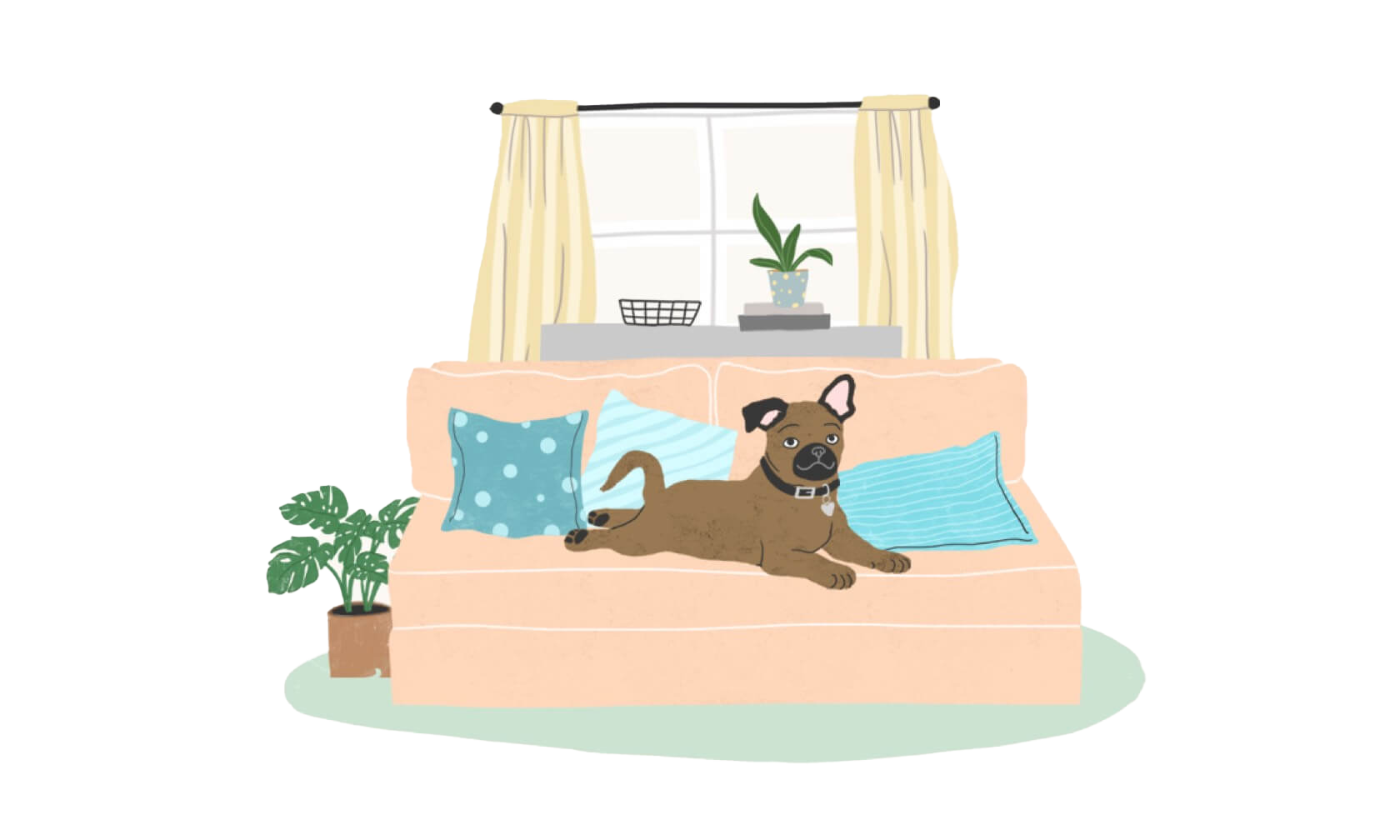Dogs love to chew — and they need to chew! Chewing helps clean teeth, keeps the jaw strong, and helps a dog relax. Chewing becomes a problem when they decide that your favorite pair of shoes or an expensive piece of furniture is their new favorite chew toy. Destructive chewing is not only frustrating and costly, but it can also be dangerous for your dog. There are a few things to consider if your dog chews everything and you want to stop it.
Why Does My Dog Chew Everything?
- Boredom
For many dogs, excessive chewing is a sign that they are bored and need an outlet for extra energy. Make sure your dog gets enough walks and exercise. But even if a dog is getting physical exercise, it's important to provide them with mental enrichment activities to prevent boredom. - Anxiety
Destructive chewing can be a symptom of anxiety in dogs. Does your dog get into chew mode only when they are left alone? It may be a sign that they suffer from separation anxiety. Dogs with separation anxiety may chew on doorways or walls to escape, or shred furniture or other items in their panic. - Teething
If your puppy is under eight months old, their destructive chewing may happen because they are teething. The teething process is uncomfortable for many dogs, and chewing helps alleviate gum discomfort.
How To Stop Your Dog from Chewing Everything
- Dog-Proof
Your dog doesn't automatically know that your shoes or the couch cushions are off-limits! Take some time to dog-proof your home or the area where your dog is spending their time, especially when they are left alone and you can't supervise them. Remove items they've shown a preference for chewing, such as shag rugs or wood furniture. Use gates as needed to prevent them from sneaking into rooms with expensive furniture or electronics. - Provide Lots of Appropriate Things To Chew
Because chewing is a natural and much-needed dog behavior, it's important to give your dog an outlet for it. Destructive chewers often need chew toys that can hold up to strong jaws, so look for dog-safe materials made to last. With that said, some dogs love to rip up and shred things. Talk to your veterinarian about which chew toys are best for your dog.
Rotate your dog's chew toys regularly, so there is variety and they don't lose interest.
- Increase Exercise and Enrichment
A dog's needs must be met to alleviate boredom and prevent destructive chewing. You may need to increase the amount of physical exercise your dog is getting. Ideally, dogs should have at least 30 minutes of exercise each day — but they may need more based on their breed, age, and energy levels. Your veterinarian can guide you on your pup's ideal activity length and intensity. Mix up the exercise to keep it fun and engaging. Walks can get boring, so add in games of fetch, tug, or playing with a flirt pole. Go on hikes together or explore new walking routes.
And don't forget the mental exercise! Provide your dog with enrichment activities that allow them to engage in natural dog behaviors like foraging, digging, chewing, and sniffing. One of the easiest ways to add enrichment is to make each mealtime a puzzle or game, using interactive feeder toys or scatter feeding. Short and sweet training sessions count as enrichment and help burn energy too. - Address Any Underlying Anxiety
If your dog is chewing because they are anxious, it's crucial to treat their anxiety and help them cope. Contact your veterinarian to help diagnose anxiety and ask if your dog will benefit from antianxiety medications. Work with a certified canine behavior consultant to begin anxiety treatment with a behavior modification plan.
Should You Use Bitter Sprays to Stop Your Dog’s Chewing?
In some instances, items are difficult to move out of your dog's area or are present everywhere, such as table legs or electric cords. Consider whether using a bitter anti-chew spray will help in these instances. Bitter sprays, also available in pastes, are applied to an item and taste bad to a dog. This bad taste will hopefully discourage your dog from chewing on the item. However, some dogs don't mind the taste of these products. Sprays evaporate quickly, so for dangerous items like power cords, it's easier to simply use other safety measures to block access. And once the spray wears off an item, your dog may return to chewing on it.
The best way to stop your dog's destructive chewing is to manage their environment and provide appropriate outlets for their chewing needs. If you notice them starting to gravitate towards a chair leg, interrupt them and redirect them to an appropriate chew toy or edible chew. Block off their access to that area when you aren't directly supervising them. Working with a certified dog trainer can help you stop your dog's chewing. They can teach you how to train a "leave it" cue and identify behavioral reasons your dog is destroying things.
ZPC-02477R1





